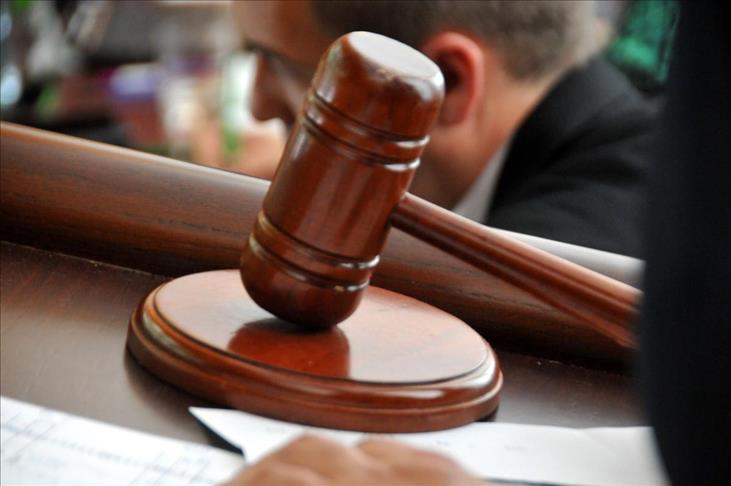Corruption in Cambodian courts endemic, says new report
Corruption, government interference 'endemic' across Cambodia’s justice system, says International Bar Association’s Human Rights Institute

By Lauren Crothers
PHNOM PENH
Corruption is endemic across Cambodia’s justice system, according to a new report released Thursday by an organization that refers to itself as "the global voice of the legal profession".
The International Bar Association’s Human Rights Institute reported that corruption had infested Cambodian society through government interference, a lack of impartiality and a culture of bribery among clerks and judges that had swayed case outcomes.
A delegation of legal experts visited Cambodia in April to assess the impact of three widely criticized judicial laws passed last year that effectively entrenched not only that culture of corruption, but also granted the Minister of Justice what it called “an inappropriate role” over the judiciary.
Mark Wassouf, a barrister at London’s Doughty Street Chambers, said at a press conference in Phnom Penh on Thursday that the “fundamental underlying observation” the delegation had made was that the new laws -- on the Supreme Council of Magistrates, on Judges and Prosecutors and on the Courts -- all increased the potential “for the government to have undue influence over the judiciary.”
“It’s so important that people perceive their judiciary to be independent and neutral,” Wassouf added.
Association representatives had last year warned against the passage of the laws, citing their ability to detract from the independence of the courts and harm ties between the executive branch and judicial system.
“Corrupt influence—political and financial—appears to be exerted at will over all judicial activities,” the report found.
“Trainee judges are asked for bribes in order to enter onto professional training and those judges who are members of the incumbent Cambodian People’s Party are favored for appointments and promotions,” it added.
“It is widely acknowledged that court decisions are dictated by financial and political pressures on judges: cases in which the authorities have an interest are consistently resolved in their favour and in other cases, the party able to offer the largest bribe to a judge or clerk will almost certainly win the case, regardless of the merits.”
Canadian Justice Brenda Edwards told reporters Thursday that the passage of the laws had effectively legitimized such behaviour.
She said one of the most serious challenges in gaining judicial independence is that “clerks and bailiffs regularly assume the role of judges, that they’re gathering evidence, considering cases and writing decisions… sometimes with the knowledge of the judge, and sometimes without."
Bun Honn, president of the Cambodian bar association, told Anadolu Agency on Thursday that he could not comment on the report without seeing it, and that he had yet to receive a copy.
In the report, the Cambodian association was described as “unable to act as a meaningful regulatory body” because of a lack of independence from the government.
International Bar Association director Philip Tahmindjis said that the Cambodian association had, however, denied any wrongdoing when these allegations were put to it while the report was being drafted.
Justice Minister Ang Vong Vattana could not be reached for comment.
Anadolu Agency website contains only a portion of the news stories offered to subscribers in the AA News Broadcasting System (HAS), and in summarized form. Please contact us for subscription options.

